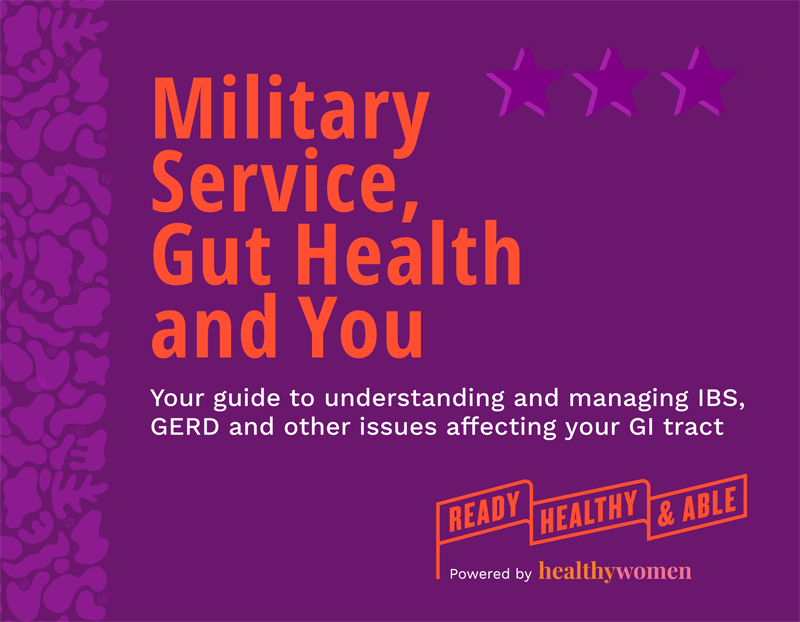Infographic text
SLIDE 1:
What Is Gut Health?
Gut health refers to the health of your digestive system, which breaks down food and liquids so your body can use them. Microorganisms in your digestive system put nutrients to use in your body. They help change food to energy, boost immunity and reduce inflammation.
SLIDE 2:
What Are Gastrointestinal (GI) Conditions?
GI conditions affect the GI tract, which is part of the digestive system and includes the esophagus, stomach, intestines and rectum. The most common are constipation, diarrhea, irritable bowel syndrome (IBS), inflammatory bowel disease (IBD) and gastroesophageal reflux disease (GERD).
SLIDE 3:
Military Personnel and Gut Health
Troops often experience stress and extreme temperatures, as well as sudden changes in environment, sleep patterns and diet — all factors that can harm gut health.
Gut issues often become chronic conditions that service members deal with long term.
SLIDE 4:
Risks Among Service Members Assigned Female at Birth
One study found:
- 1 in 3 female veterans have IBS
- More women than men in the military have IBS
- Women experience military sexual trauma at higher rates than men, putting them at greater risk for gut problems caused by stress
SLIDE 5:
The Downside of MREs
Service members in the field are often limited to eating shelf-stable MREs. While MREs contain similar amounts of nutrients as an average diet, they don’t contain fresh foods, are high in salt and are highly processed — all of which are bad for your gut health.
SLIDE 6:
Ways to Improve Your Gut Health
- Drink plenty of water
- Cut the salt
- Add potassium (bananas, potatoes, kidney beans) to your diet
- Eat or drink powdered greens when fresh foods aren’t available
- Start a food diary to discover any triggers
SLIDE 7:
Mental Health Matters
In addition to physical and environmental stressors, GI issues are linked to mental health. Depression, anxiety and PTSD can all cause a stress response that affects the group of microorganisms living in your gut, called a microbiome.
SLIDE 8:
Mending the Mind-Gut Connection
Because psychological stress affects gut health, be sure to prioritize your mental wellness. Some examples include therapy, practicing meditation, going on walks, focusing on gratitude, taking time away from screens, journaling and making time for hobbies.
SLIDE 9:
When to Get Help
Symptoms of GI issues can turn severe if you don’t get medical help. Here are some red flags that mean it’s time to see a medical provider:
- Severe abdominal pain
- Blood in your poop
- Unexplained weight loss
- Ongoing diarrhea or constipation
- Frequent or severe heartburn















